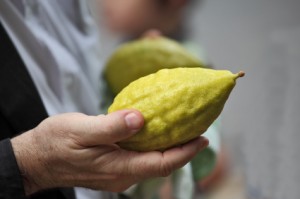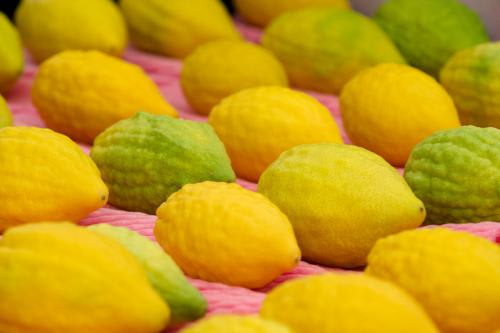There is a technique in education called “processing.” This means that after an event or a class the teacher instructs the students to reflect back on their experiences. For example, after a trip to an Imax, the teacher will lead a discussion or hand out a survey sheet asking the students what they liked most about the Imax, what they learned from it, what they didn’t like about it, what they might disagree with, and so on and so forth.
The past month or two have been jam-packed with powerful moments in Jewish life. From crying along with the shofar (ram’s horn) blasts to yelling, “Hashem is our Lord,” to leaving our homes and sitting under the shade of G-d in the Sukkah to singing and dancing all night and day with our beloved Torah scrolls. There has been no shortage of climactic moments in our spiritual lives.
All too often, however, these moments of inspiration become faded memories of the past. What do they mean to us when we put away our arba minim (four species) and take down the sukkah (temporary hut)? This is where processing comes in: spiritual processing.
 It is no coincidence that the Jewish calendar emphasizes that this time of the year is agriculturally the period of harvesting; hence, Sukkot is called Chag Ha’asif, the Holiday of Gathering. Our sages teach that this “harvest” is not only a harvest of physical accumulations and crops–it is also a harvesting of spiritual accumulations, a time to take stock of what you have tended to and hopefully produced in your spiritual fields, in your heart and in your mind.
It is no coincidence that the Jewish calendar emphasizes that this time of the year is agriculturally the period of harvesting; hence, Sukkot is called Chag Ha’asif, the Holiday of Gathering. Our sages teach that this “harvest” is not only a harvest of physical accumulations and crops–it is also a harvesting of spiritual accumulations, a time to take stock of what you have tended to and hopefully produced in your spiritual fields, in your heart and in your mind.
The Jewish holidays are not meant to be pockets of time isolated from the rest of year. They are intended to be times of greater focus and closer connection with the values and meaning of our lives that (should) exist all year-round.
The faith we speak of on Pesach is not limited to Pesach; it is merely accentuated for a week in order that it be more alive in our hearts throughout the year. Our recognition and proclamation of G-d as King is not an idea meant strictly for Rosh Hashanah; it is given a spotlight on that day in order that we fortify our commitment to that ideal throughout our lives.
This is true with all the holidays. They each highlight a different value of Jewish life so it is reinforced and further developed in our lives thereafter.
No one went through the past two months untouched. Whether it was something your rabbi said or something your friend said, the sweet and inspiring melodies of the High Holidays, the ascent to life as an angel on Yom Kippur, the joy of life under G-d’s protection in the Sukkah, or the celebration of our love for Torah, there was something for everyone. Now we have the opportunity to transform it from an uplifting moment to lifelong growth and development.
Process. Take a few minutes, before it’s too late, and have a discussion with your spouse, your children, your friends or yourself. What touched me in the past two months? Does that translate into something concrete that I can incorporate into my life? What does my spiritual harvest consist of? Have I changed–for the better or for the worse–and will I keep going in that direction? What did I not enjoy so much and what would I like to do differently next time around? Are there new questions I need to talk out, perhaps with someone more knowledgeable? How can I keep asking questions? How do I continue to care?
The true test of how you celebrate the holidays is not how you blow the shofar, but how long its blast resonates in your ears. Not how you put up the sukkah, but how you take it down. Grab hold of this incredible opportunity, and make this not the end of the festival season, but rather the beginning.
The words of this author reflect his/her own opinions and do not necessarily represent the official position of the Orthodox Union.
